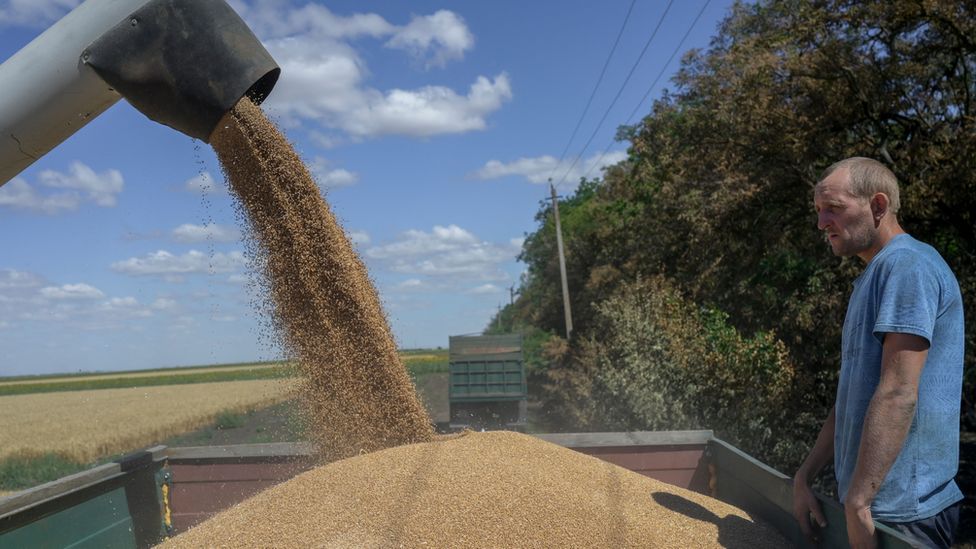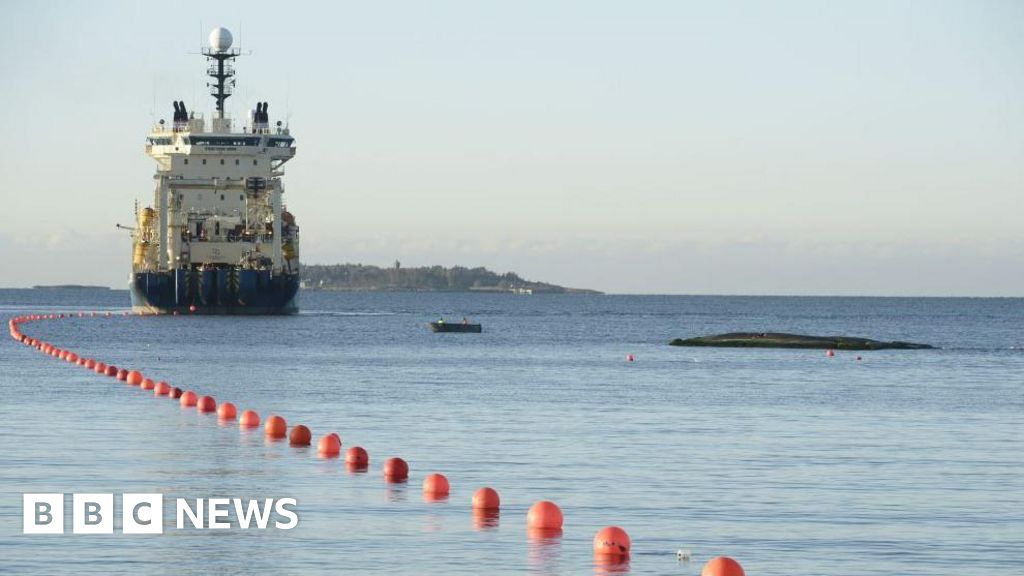ARTICLE AD BOX
 Image source, Getty Images
Image source, Getty Images
A deal has been reached to allow cargo ships to take grain from Ukrainian ports to the rest of the world, Turkey says.
A blockade imposed by Russia has caused soaring food prices and left millions at risk of hunger.
How much grain is stuck in Ukraine?
About 20m tonnes of grain meant for export are trapped in the country.
The war also means that this year's harvest will be smaller.
As much as 30% of the 86m tonnes of grain Ukraine normally produces will not be harvested, says Laura Wellesley, a food security specialist at think tank Chatham House.
How have grain shortages affected other countries?
Ukraine is usually the world's fourth-largest grain exporter. It normally produces 42% of the world's sunflower oil, 16% of its maize and 9% of its wheat.
In addition, wheat exports from Russia - the world's largest exporter - are down.
Western sanctions do not target Russian agriculture, but the Kremlin argues they have hindered exports by hiking insurance rates and affecting payments. Russian ships carrying agricultural products are not barred from EU ports.
Ukraine and Russia usually supply over 40% of Africa's wheat, the African Development Bank says.
But the war has led to a shortage of 30 million tonnes of food in Africa, it says. This has contributed to a 40% rise in food prices across the continent.
Similarly, Yemen normally imports more than a million tonnes of wheat a year from Ukraine.
The fall in supplies between January and May saw the price of flour rise by 42% and bread by 25% in Yemen, the UN says.
In Syria, another big importer of Ukrainian wheat, the price of bread has doubled.
International wheat prices have been falling on the news of the deal.
However, Laura Wellesley says that unless a lot of Ukraine's grain is shipped, many countries in the Middle East and Africa will go short.
"This would push up the price of bread within those countries even further, which would cause a great deal of social unrest," she says.
Image source, Getty Images
Image caption,Cargo ships have been unable to export grain from Ukraine since February
What's the plan to lift the embargo?
Working on the UN's behalf, Turkey has been discussing a plan with Russia and Ukraine to open up a "maritime corridor" in the Black Sea.
Officials say the plan includes:
- Ukrainian vessels guiding grain ships in and out through mined port waters
- Russia agreeing to a truce while shipments move
- Turkey inspecting ships to allay Russian fears of weapons smuggling
- Russian exports of grain and fertiliser via the Black Sea permitted
Who will insure cargo ships using the sea corridor?
The cost of insuring ships entering the Black Sea soared after Russia invaded Ukraine.
Some insurers have charged 5% or 10% of the value of the ship for a single voyage, according David Osler, insurance editor at Lloyds List.
If Ukraine escorts ships through mined areas, insurance costs could fall.
"I don't think the premiums will be exorbitant," says Mr Osler. "I don't think they'll deter shippers from transporting Ukrainian grain to where it's needed."
How has grain been exported without a safe sea corridor?
Before the war, Ukraine sent over 90% of its food exports by sea.
The EU is trying to help - setting up "solidarity lanes", so that Ukraine's grain can be shipped from ports on the Baltic Sea, and also from the Romanian port of Constanta. For part of the journey to Constanta, the grain can be transported by barge along the Danube.
However, one major problem is that Ukraine's train tracks are wider than those in the rest of Europe. That means grain be unloaded from one set of wagons at its border and reloaded onto others.
It has been taking as much as three weeks for grain to cross Europe and reach ports on the Baltic.
Before the war, Ukraine had been exporting as much as 7m tonnes of grain a month.

 2 years ago
17
2 years ago
17








 English (US)
English (US)